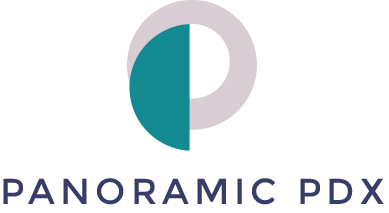From Eco-Guilt to Empowerment: Using Emotional Insight to Fuel Career Alignment
Introduction
In my work as a career counselor, I’ve noticed an increasing trend among clients grappling with eco-guilt and deep frustration with the systems that contribute to climate change and perpetuate inequality. Many individuals come to me not only because they’re dissatisfied with their jobs but because they feel an overwhelming sense of misalignment between their work and their values—particularly when it comes to sustainability and social justice. For these clients, it’s not just about finding a new job—it’s about reclaiming a sense of integrity and purpose in the face of larger systemic challenges.
The Emotional Landscape of Eco-Guilt and Anger
Eco-guilt is a powerful emotional burden that many people carry when they feel complicit in industries that harm the environment. But beyond guilt, there is a more complex emotion that emerges: anger. This anger often stems from a deep sense of betrayal by the systems that have allowed environmental destruction and inequities to persist.
Clients frequently express frustration with the industries they work in, feeling as though their jobs are contributing to the very problems they care about—climate change, social inequality, and resource exploitation. But their anger is often much broader, targeting the larger social, political, and economic systems that prioritize profit and growth over sustainability and well-being. They feel powerless in the face of these massive structures, and it’s this anger—combined with eco-guilt—that fuels their desire for change.
The Intersection of Climate and Career Anxiety
Career dissatisfaction becomes even more difficult to manage when it intersects with climate anxiety. Clients are not just stressed about their current jobs; they’re anxious about the future of the planet. They see the environmental impact of their industries and feel trapped—both financially and emotionally—in roles that seem to make the problem worse.
This internal conflict between financial necessity and ethical alignment often leads to heightened feelings of frustration, helplessness, and moral distress. Clients who are passionate about environmental sustainability or social justice are particularly susceptible to burnout in industries that seem out of step with these values. They wrestle with questions like, “Am I part of the problem?” or “How can I support myself without compromising my beliefs?”
Systemic Injustice and Power Imbalances
A recurring theme in my sessions is the anger my clients feel about the systemic inequities that drive climate change and environmental degradation. They speak about the power imbalances between corporations and individuals, where those in power continue to profit at the expense of environmental and social well-being. These inequities leave many feeling cynical, disillusioned, and disconnected from their work.
The frustration is especially palpable for those working in industries where they witness these power dynamics firsthand. Clients in roles connected to fossil fuels, fast fashion, or large-scale manufacturing, for example, often feel the weight of working for organizations that prioritize short-term profit over long-term sustainability. They feel complicit in decisions that seem to perpetuate harm rather than solve it, and this can result in moral injury—where their personal integrity is compromised in the service of their job.
Turning Anger Into Action in Career Transitions
Anger and frustration, while painful, can also be powerful motivators for change. In my work with clients, I often explore how they can use their emotions as fuel to take action—whether that means transitioning to a more aligned career or finding ways to advocate for change from within.
Aligning your career with your values doesn’t mean you have to fit into a predefined category. It’s about discovering how your unique skills and passions can intersect with what matters most to you. For some, this might mean moving into fields that actively address climate justice or sustainability. Many clients have found fulfillment working in renewable energy, environmental advocacy, or sustainable business practices. Others choose roles in policy and education, where they can influence larger systemic changes in how industries approach environmental stewardship.
For clients who feel they can’t immediately leave their current jobs, I encourage them to seek ways to align their work with their values. This might mean advocating for sustainable practices within their company, creating green initiatives, or pushing for corporate social responsibility. While the change might be incremental, these efforts can make a meaningful difference and help them feel less disconnected from their ethical beliefs.
Conclusion
Eco-guilt and anger are natural responses to the state of the world, especially for those who care deeply about sustainability and social justice. But in fact, they can serve as powerful catalysts for finding greater alignment between your career and your values. By exploring new career paths or advocating for change within your current role, you can turn your frustration into purpose, making both a personal and a systemic impact.
About Me
In my career counseling practice, I emphasize empowerment and alignment. My goal is to help you navigate your career in a way that reflects your personal values and needs. With over 15 years of experience, I’ve supported clients across all levels of employment, from entry-level to leadership roles. As a licensed professional counselor trained in Acceptance and Commitment Therapy (ACT) and Eye Movement Desensitization and Reprocessing (EMDR), I bring a depth of expertise to help you align your career with your values and core beliefs. My commitment is to guide you towards a career path that feels authentic and fulfilling.



